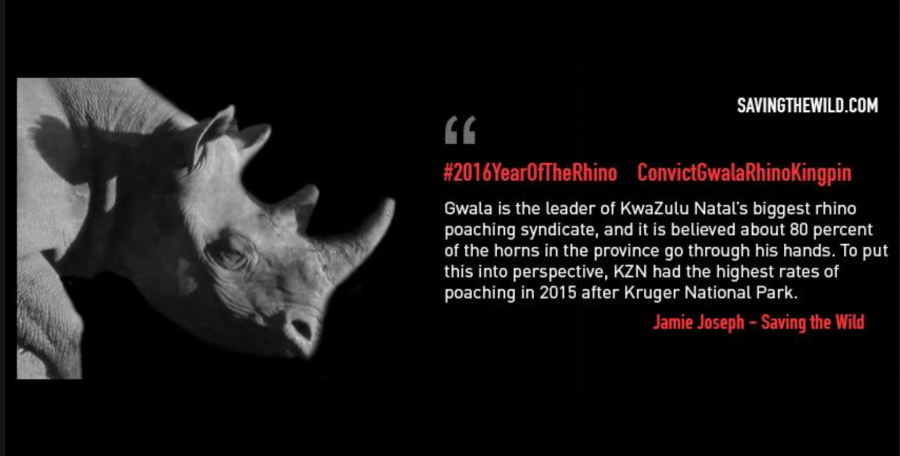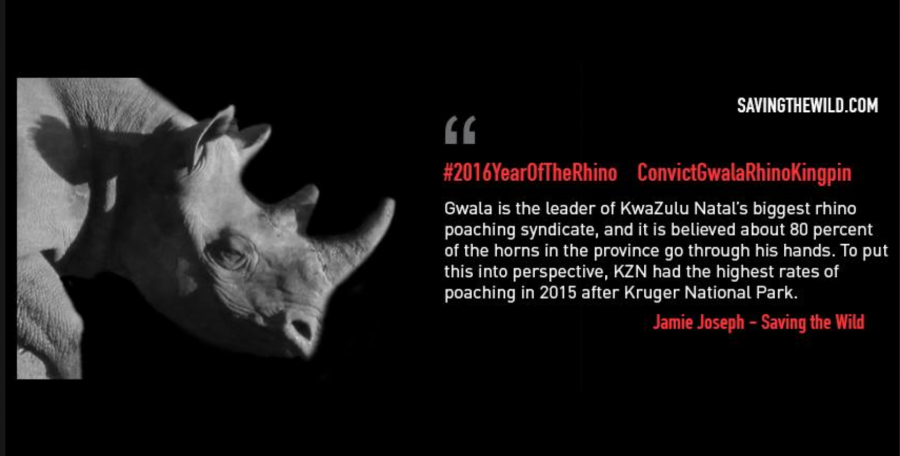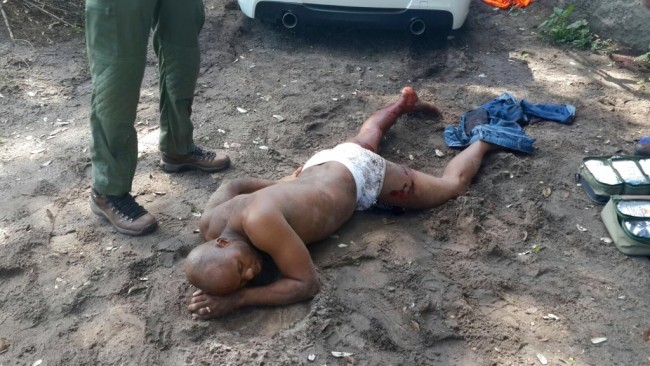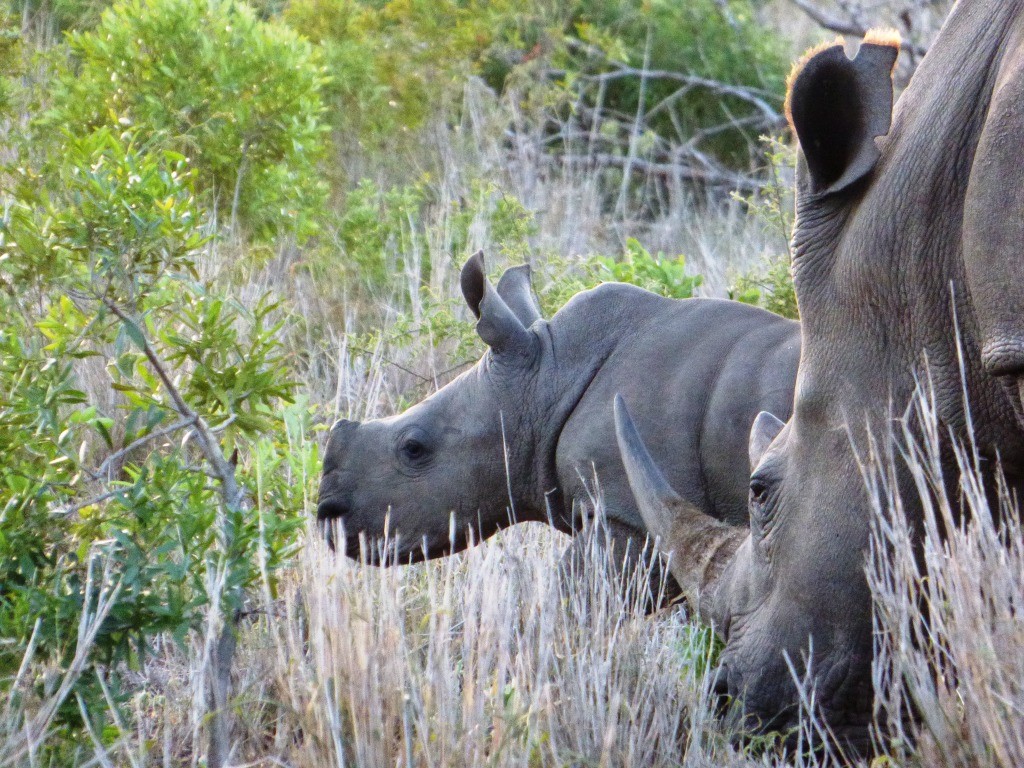
The Rhino-Poaching Kingpin and the Magistrate Who Keeps Him Free
Dumisani Gwala is the rhino-poaching kingpin you’ve never heard of. Gwala is currently awaiting trial to take place at Mtubatuba courthouse and now YOU have the power to help put him in jail. Gwala is the leader of KwaZulu-Natal’s biggest rhino-poaching syndicate, and it is believe about 80 percent of the horns in the province go […]

Dumisani Gwala is the rhino-poaching kingpin you’ve never heard of. Gwala is currently awaiting trial to take place at Mtubatuba courthouse and now YOU have the power to help put him in jail.

Gwala is the leader of KwaZulu-Natal’s biggest rhino-poaching syndicate, and it is believe about 80 percent of the horns in the province go through his hands. To put this into perspective, KZN had the highest rates of poaching in 2015 after “ground zero” Kruger National Park.
An eight-month intelligence-driven operation culminated in Gwala’s arrest in December 2014. Using a reverse sting, crime intelligence officers from Pretoria gained his trust by selling him rhino horn on five separate occasions. The horns were supplied by Ezemvelo KZN Wildlife.
In the final move, in the rural community of Manguzi (15km south of the Mozambique-South Africa border), a crime intelligence agent handed over a 5kg horn and received residual money from the previous sale. At that point a Special Task Team member jumped out of the boot of the agent’s car.
The alleged kingpin attempted to disarm the Special Task Team member, severely beating and biting him, and then he got into his car and attempted to run him over. Back-up arrived and Gwala was arrested.

Gwala is brutal by nature, and widely known among poaching circles and law enforcement as a man that rules by the gun. There have been several cases against him before, but the cases have either been withdrawn, or the dockets have suspiciously gone missing. While Gwala claims he is unemployed, the Asset Forfeiture Unit seized six luxury vehicles from his premises worth millions; including a BMW X5 and a 3-series, a Mercedes Kompressor, a Toyota Land Cruiser and a Prada.
When Gwala appeared in court, not only was he granted bail of a pittance R10,000 (US$600), but Magistrate Ngcobo released all his vehicles that had just been seized. South African Police Services (SAPS) immediately obtained a court order to repossess the vehicles, but when the Asset forfeiture unit arrived at his house to collect the vehicles, he stood defiantly at the entrance with a five litre container of petrol and threatened to burn all the vehicles if the officers came any closer. The officers left and he quickly stashed all the vehicles. Only one vehicle has since been recovered.

Magistrate Ngcobo has a long history of letting off rhino poachers with a slap on the wrist or a small fine. Gwala’s defense attorney is Ngwenya, the same attorney that defends most of the poachers in KwaZulu Natal. How these poverty-stricken poachers can afford an attorney is still a mystery, but when Magistrate Ngcobo needs to attend cases in Pongola he has been known to stay at Ngwenya’s house – so perhaps that is a question the two comrades can answer together.
Just last week Magistrate Ngcobo acquitted Warrant Officer Christopher Gumbi in the Mtubatuba Magistrate’s Court. He was originally charged with armed robbery, possession of rhino horn, and defeating the ends of justice.
Warrant Officer Christopher Gumbi, of the Jozini police cluster, was arrested about one year ago after an undercover operation and months of surveillance. Solomon Makgale, spokesperson for national police commissioner Riah Phiyega, said Gumbi is alleged to have pointed his weapon at undercover agents posing as poachers, robbed them of two rhino horns, and fled without attempting to arrest them. Gumbi was later arrested with the rhino horns and his police service revolver was confiscated.
My sources tell me that on numerous occasions Warrant Officer Gumbi had seized rhino horns from poachers, and then sold them on to Gwala. My sources all tell me that on numerous occasions poachers that are caught poaching will admit that they are working for Gwala, but they refuse to testify against him in court as they fear for their lives.
South African criminal syndicates are working in conjunction with poachers from Mozambique, and the conviction rate of arrests are ashamedly low, often with poachers being let off with a small fine or a warning. This looting of our natural resources is just as much about humans as it is about animals, and if we continue to fail to prosecute these criminals, economies will collapse, causing more poverty and more conflict.
Jamie Joseph is founder of Saving the Wildlife. This post was originally published on her blog.